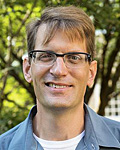Understanding and Optimizing Exploratory Hydrothermal Reactions
Category
Published on
Abstract
Inorganic–organic hybrid materials such as organically templated metal oxides, metal–organic frameworks (MOFs) and organohalide perovskites have been studied for decades, and hydrothermal and solvothermal syntheses have produced thousands of new materials that collectively contain nearly all the metals in the periodic table. The development of new compounds relies primarily on exploratory syntheses because their formation is not fully understood, Simulation- and data-driven approaches (promoted by efforts such as the Materials Genome Initiative) provide an alternative to experimental trial-and-error. In this work, an alternative approach that uses machine-learning algorithms trained on reaction data to predict reaction outcomes for the crystallization of templated vanadium selenites is demonstrated. Archived ‘dark’ reactions, both failed and successful attempts at hydrothermal syntheses, were used to create a database. Physicochemical property descriptions to the raw notebook information using cheminformatics techniques, and the resulting data were used to train a machine-learning model to predict reaction ‘success.’ When carrying out hydrothermal synthesis experiments using previously untested, commercially available organic building blocks, the machine-learning model outperformed traditional human strategies, and successfully predicted conditions for new organically templated inorganic product formation with a success rate of 89 per cent. Inverting the machine-learning model reveals new hypotheses regarding the conditions for successful product formation.
Bio
 Alex Norquist received a B.A. in chemistry from Gustavus Adolphus College, in St. Peter MN, in 1996 and a M.S. and Ph.D. from Northwestern University in 1997 and 2000. His doctoral work was conducted under the guidance of Kenneth R. Poeppelmeier, and was focused upon controlling the crystallization of early transition metal oxide fluoride anions. From 2001 to 2003 he was a post doctoral research assistant in the lab of Dermot O'Hare, in the Inorganic Chemistry Laboratory, University of Oxford where his research was divided into two areas. The first involved monitoring crystallization and structural transformations in hydrothermal reactions using synchrotron radiation, at the SRS in Daresbury Laboratory, while the second was an investigation of the hydrothermal chemistry of uranium. He joined Haverford College in the Fall 2003 semester.
Alex Norquist received a B.A. in chemistry from Gustavus Adolphus College, in St. Peter MN, in 1996 and a M.S. and Ph.D. from Northwestern University in 1997 and 2000. His doctoral work was conducted under the guidance of Kenneth R. Poeppelmeier, and was focused upon controlling the crystallization of early transition metal oxide fluoride anions. From 2001 to 2003 he was a post doctoral research assistant in the lab of Dermot O'Hare, in the Inorganic Chemistry Laboratory, University of Oxford where his research was divided into two areas. The first involved monitoring crystallization and structural transformations in hydrothermal reactions using synchrotron radiation, at the SRS in Daresbury Laboratory, while the second was an investigation of the hydrothermal chemistry of uranium. He joined Haverford College in the Fall 2003 semester.
His research interests at Haverford involve studying the formation of organically templated inorganic materials. His research is currently funded by the National Science Foundation, with past support from the Camille & Henry Dreyfus Foundation, the American Chemical Society Petroleum Research Fund and Research Corporation.
Sponsored by
Cite this work
Researchers should cite this work as follows:
Time
Location
Physics, Room 203, Purdue University, West Lafayette, IN